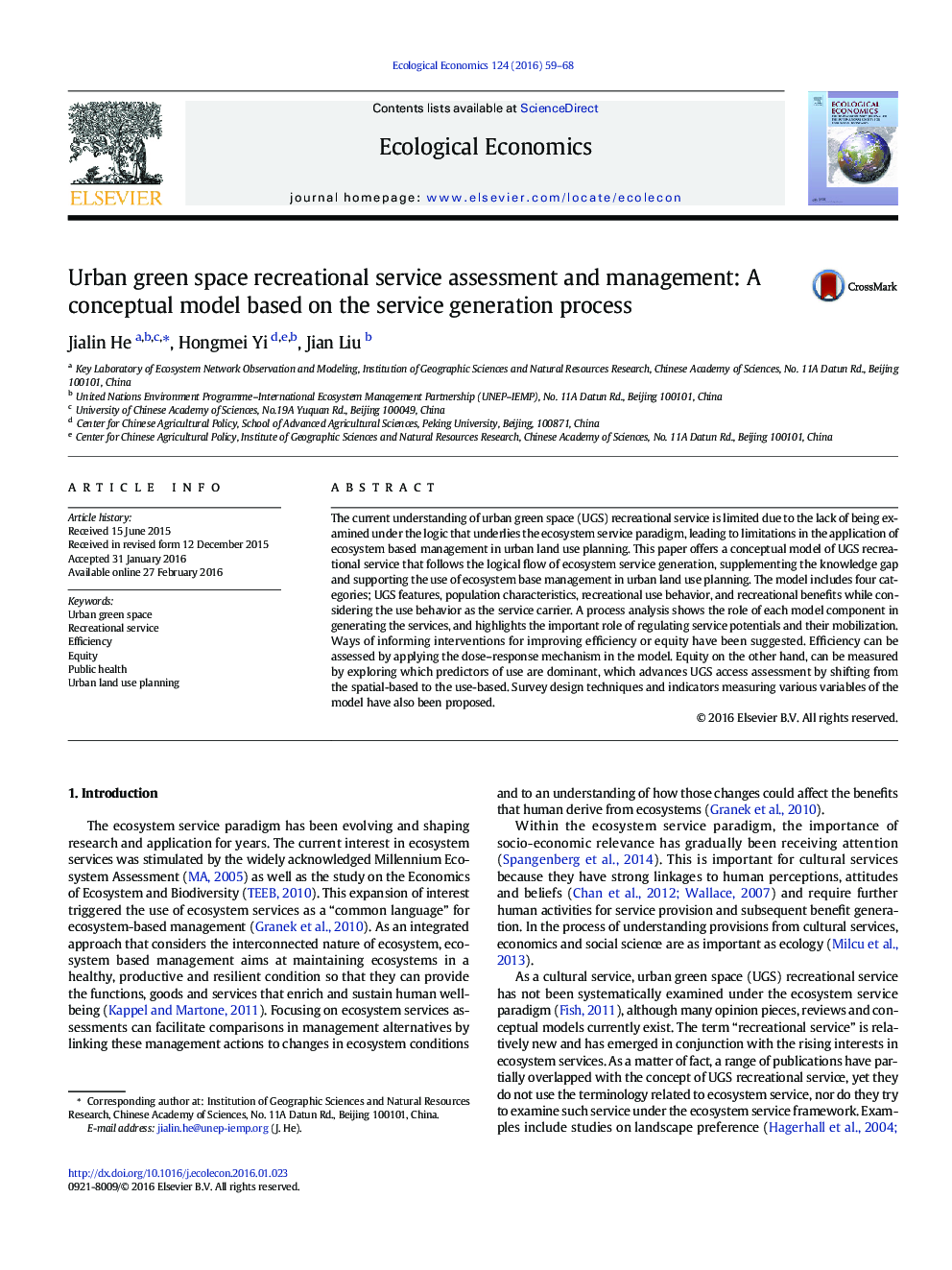| Article ID | Journal | Published Year | Pages | File Type |
|---|---|---|---|---|
| 5049028 | Ecological Economics | 2016 | 10 Pages |
â¢Socio-economical relevance are important in mobilizing UGS recreational service.â¢Understanding the service can support the use of ecosystem based management in urban planning.â¢Efficiency can be assessed by adopting the dose-response approach in the model.â¢Equity can be assessed by exploring which predictors of use are dominant.â¢Multi-sectoral approaches and survey techniques are needed in the model application.
The current understanding of urban green space (UGS) recreational service is limited due to the lack of being examined under the logic that underlies the ecosystem service paradigm, leading to limitations in the application of ecosystem based management in urban land use planning. This paper offers a conceptual model of UGS recreational service that follows the logical flow of ecosystem service generation, supplementing the knowledge gap and supporting the use of ecosystem base management in urban land use planning. The model includes four categories; UGS features, population characteristics, recreational use behavior, and recreational benefits while considering the use behavior as the service carrier. A process analysis shows the role of each model component in generating the services, and highlights the important role of regulating service potentials and their mobilization. Ways of informing interventions for improving efficiency or equity have been suggested. Efficiency can be assessed by applying the dose-response mechanism in the model. Equity on the other hand, can be measured by exploring which predictors of use are dominant, which advances UGS access assessment by shifting from the spatial-based to the use-based. Survey design techniques and indicators measuring various variables of the model have also been proposed.
